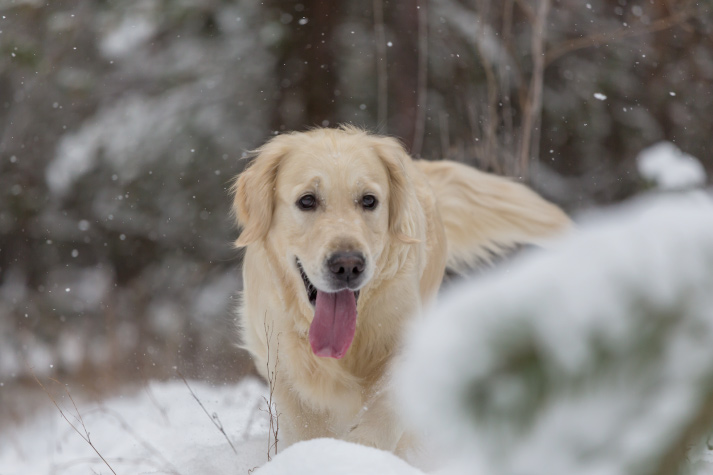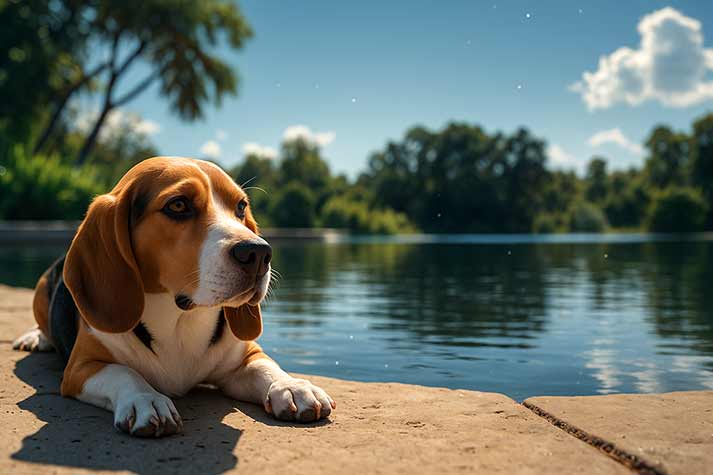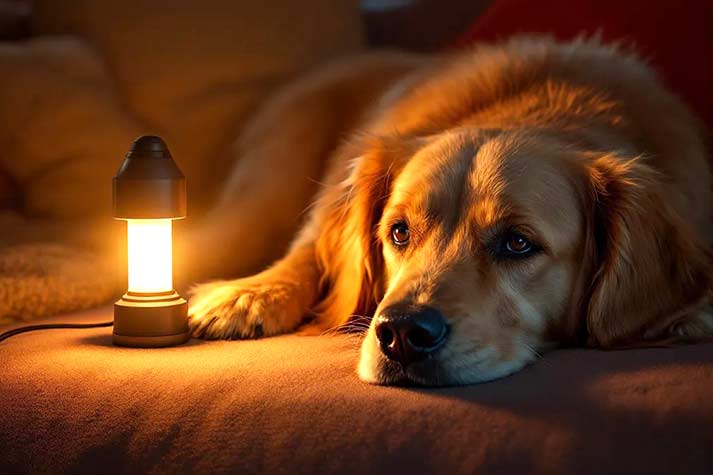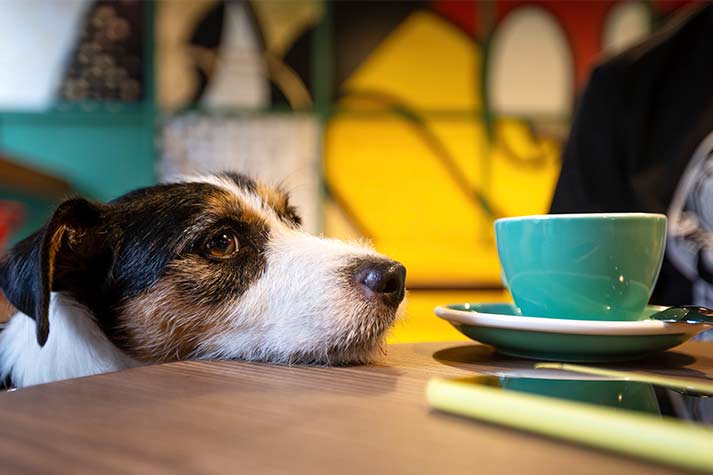
16 Oct
Tips to Keep Your Pet Safe This Winter
Winters are just around the corner, so you know what that means: the season of lazy mornings and warm beverages is here. Winters also have a varying impact on the environment and those dwelling in it; the effects of the cold on your pet are different to its effect on you, for example. Given how the cold has varying effects, it is wise to plan for the upcoming months, so your pet remains healthy and happy during winters. Here are a few tips to keep your pet safe this winter.
Be Mindful of Age & Breed Specific Factors
Depending on the species and breed of your pet, the preparation for winter may change. Take dogs for example; while some dogs like huskies have thick double coats which insulate them from the frosty temperatures, other breeds like chihuahuas will not be warm due to a lack of insulation.
So, if you have a pet with a thin coat, make sure they aren’t roaming around in the cold without appropriate protection. The insides of your house can get cold too, so make sure exposure to chilly temperatures is minimized both indoors and outdoors. If you have an outdoor cat, you should consider bringing them inside during the frigid nighttime to keep your pet safe this winter.
You should also be mindful of your pet’s age. Younger pets will not struggle with this, but elderly pets may have a harder time regulating their body temperature due to slower blood flow, which can then lead to stiff joints and pain. Try to maintain an appropriate temperature around the house for your furry friend, and place non-slip mats if you have slippery floors to minimize the chance of an accident.
Winter Walks
If you have an indoor cat, this won’t bother you too much, since your cat won’t be expecting any outdoor time in the form of daily walks. However, nearly every dog will require a daily walk or two for refreshment and rejuvenation, so you’ll need to learn to gauge whether the temperature is appropriate for your pet.
A basic test you can do is by placing the back of your hand on the walking surface. If you cannot hold your hand in place for more than a few seconds, it is too hot/cold for your pet; this is very important, as pets who are not adapted to colder climates are susceptible to hypothermia.
You can invest in a waterproof pet jacket to keep your pet warm when on walks. Such jackets usually come with a layer of insulation on the inside along with a waterproof exterior, which should keep your pet warm and dry while on their daily walks. If your pet dislikes their cat, try keeping your walks short and crisp to minimize exposure to the cold; shorter walks make it much easier to keep your pet safe during winters and snowy weather.
Be wary of frozen puddles and ponds, since you have no way of gauging how shallow or deep, they are. Make sure to towel dry your pet properly once you’re inside and avoid using a hot water bottle or electrical heating pad since these can get hot enough to burn. If your pet experiences hypothermia or frostbite, head to your vet immediately for specialist care.
Hydration is King Whether in the Cold or Hot
Hydration is a fundamental requirement for pets. Being sufficiently hydrated is essential for several bodily functions, which include the regulation of body temperature. Water is the key to a healthy pet, so make sure your pet’s water bowl stays clean and full. Remember, snow is not a substitute for fresh, clean drinking water. Your pet won’t be safe in winter or summer if you skimp on hydration.
Being Aware of Chemical Hazards During Winters
Winter brings with it ice, frost, and snow. Since these are perceived as hazards in our day-to-day life given how they interact with streets, cars, and so on, it is commonplace for people to use chemical agents to reduce the impact of the cold weather. There are several different chemicals which are used, all of which you should keep away from your pet.
Here are some items to hide to keep your pet safe this winter.
Ice melters or deicer products can irritate and burn your pet’s paw pads. These substances are also toxic if ingested or licked, so keep your pet’s feet clean.
Antifreeze is a common chemical during the winter months, but one which should be kept out of your pet's reach. Ingesting it will lead to kidney failure, so make sure to keep it out of your pet’s reach and clean up any spills you encounter. Rush to your vet if you suspect your pet has ingested antifreeze.
The cold outdoors may lead to pests like rats seeking shelter indoors. If you’re facing problems with pests, make sure to keep any pesticides or poison out of your own pet’s reach, as it is likely they will stumble on it before the pest does.
Tap Your Car
While this one isn’t specifically for pets, it is a basic act of kindness we can afford to all animals during the harsh winter months. During cold nights, it is common for stray cats and dogs to seek shelter under and sometimes in your car. Since an engine is warm, animals try to stick close to it, which means they'll often fall asleep under your car. A friendly tap or two on your car's hood/bonnet should be enough to rouse any sleeping animals using it as a shelter for the night. For those extra heavy sleepers, a honked horn should do the trick.






AUTHOR’S BIO
Carry My Pet
Passionate pet enthusiasts and globetrotters, dedicated to easing furry friends' journeys worldwide. Penning tales of compassion at CarryMyPet, where every relocation is a tail-wagging adventure.